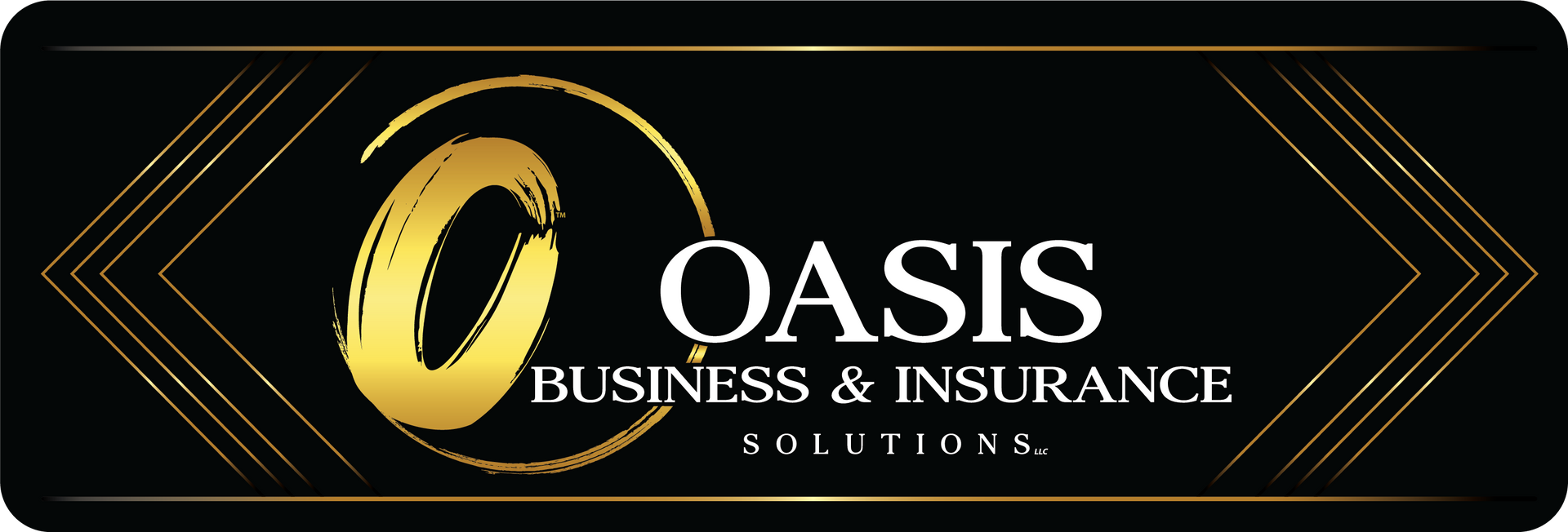
Commercial Insurance Property & Casualty Lines

Understanding Commercial Insurance
Protecting Your Business from Unforeseen Risks
Commercial insurance is a crucial aspect of safeguarding a business from potential risks and financial losses. It encompasses various types of coverage designed to protect enterprises, their assets, employees, and operations from unexpected events that could otherwise lead to significant disruptions or bankruptcy.
Types of Commercial Insurance
Property Insurance
Property insurance provides coverage for physical assets such as buildings, equipment, and inventory. In the event of damage or loss due to fire, theft, vandalism, or natural disasters, property insurance ensures that businesses can recover and continue operations with minimal financial impact.
Liability Insurance
Liability insurance protects businesses from claims involving injury or damage caused to third parties. This includes general liability, which covers incidents such as slip-and-fall accidents, and professional liability, also known as errors and omissions insurance, which covers negligence or mistakes in professional services.
Workers' Compensation Insurance
Workers' compensation insurance is mandatory in most jurisdictions and provides coverage for employees who suffer work-related injuries or illnesses. It covers medical expenses, rehabilitation costs, and lost wages, ensuring that employees are taken care of while protecting businesses from lawsuits related to workplace injuries.
Commercial Auto Insurance
Commercial auto insurance covers vehicles used for business purposes, whether owned by the company or by employees. This type of insurance includes coverage for property damage, bodily injury, and collision, and can also offer protection against uninsured or underinsured motorists.
Business Interruption Insurance
Business interruption insurance compensates businesses for lost income resulting from events that disrupt operations, such as natural disasters or fires. This type of coverage is essential for maintaining cash flow and ensuring that fixed costs, such as rent and payroll, can be met during the recovery period.
Cyber Insurance
With the increasing reliance on digital technologies, cyber insurance has become vital for protecting businesses from cyber threats, including data breaches, hacking, and other cybercrimes. Cyber insurance covers costs related to data recovery, legal fees, and notification expenses, as well as potential fines and penalties.
Benefits of Commercial Insurance

Risk Management
Commercial insurance plays a critical role in risk management by providing financial protection against unforeseen events. It allows businesses to transfer the risk to the insurer, reducing the potential for catastrophic financial losses and enabling more strategic planning.

Legal Compliance
Many types of commercial insurance are required by law, such as workers' compensation and certain liability coverages. Compliance with these regulations ensures that businesses operate legally and avoid fines or penalties.

Business Continuity
By covering losses and facilitating recovery, commercial insurance helps maintain business continuity. This is crucial for preserving customer trust and ensuring that businesses can quickly resume operations after an incident.

Employee Protection
Commercial insurance provides essential protection for employees, particularly through workers' compensation and health insurance. This coverage ensures that employees receive necessary medical care and financial support, fostering a safer and more supportive work environment.

Peace of Mind
Having comprehensive commercial insurance coverage provides business owners with peace of mind, knowing that their enterprise is protected against various risks. This allows them to focus on growth and development without the constant worry of potential financial setbacks.

Choosing the Right Commercial Insurance
Assessing Risks
The first step in choosing commercial insurance is to assess the specific risks associated with your business. Consider factors such as industry, location, size, and the nature of operations to determine the types of coverage needed.
Consulting with Insurance Professionals
Consulting with insurance professionals can provide valuable insights and help tailor a policy to your business's unique needs. These experts can offer advice on coverage options, policy limits, and premiums, ensuring that you make informed decisions.
Comparing Policies
It is essential to compare policies from different insurers to find the best coverage at the most competitive rates. Look for reputable providers with a history of reliable service and consider factors such as deductibles, coverage limits, and exclusions.
Regularly Reviewing Coverage
As your business evolves, so do its risks. Regularly reviewing and updating your commercial insurance coverage ensures that it remains adequate and responsive to your changing needs. This proactive approach helps maintain optimal protection and avoid gaps in coverage.
Business Owner Policy (BOP)
A Comprehensive Overview
A Business Owner Policy (BOP) is a comprehensive insurance package designed for small to medium-sized businesses. It combines several types of coverage into one policy, providing a convenient and cost-effective way for business owners to protect their assets and operations.
Components of a Business Owner Policy
Property Insurance
Property Insurance covers buildings and contents owned by the business. This includes protection against damage or loss due to events such as fire, theft, or natural disasters. Property insurance can be categorized into:
- Building Coverage: Protects the physical structure owned by the business.
- Contents Coverage: Covers items within the building, such as equipment, furniture, and inventory.
General Liability Insurance
General Liability Insurance protects the business from legal claims arising from bodily injury, property damage, or personal and advertising injury caused by business operations, products, or services.
Business Interruption Insurance
Business Interruption Insurance helps cover lost income and operating expenses if the business is forced to shut down temporarily due to a covered event like a fire or natural disaster. This ensures that the business can continue to meet its financial obligations during the recovery period.
Additional Coverage
Depending on the insurer, a BOP may include or offer optional coverages such as:
- Professional liability insurance
- Data breach insurance
- Equipment breakdown insurance
- Employee dishonesty coverage
Benefits of a Business Owner Policy
Cost Savings
Bundling multiple coverages into one policy typically results in lower premiums compared to purchasing separate policies.
Simplified Management
Having one policy to manage simplifies the process of maintaining and renewing insurance.
Comprehensive Protection
Provides extensive coverage tailored to the specific needs of small to medium-sized businesses.
Eligibility and Customization
Most insurers offer BOPs to businesses that meet certain criteria, such as size, type of industry, and revenue. Business owners can work with their insurance providers to customize the policy to match their unique risks and requirements.
Occ/Acc Commercial Insurance
Understanding Occ/Acc Commercial Insurance: Essentials and Benefits
Occ/Acc Commercial Insurance, short for Occupational/Accident Commercial Insurance, is a vital component of risk management for businesses across various industries. This type of insurance provides coverage for accidents and injuries that occur in the workplace or during the course of work-related activities. It plays a critical role in safeguarding both employees and employers from the financial repercussions of unforeseen incidents.
The Basics of Occ/Acc Commercial Insurance
Definition
Occ/Acc Commercial Insurance is designed to cover employees who sustain injuries while performing their job duties. This insurance can extend to cover accidents that occur on the employer's premises, as well as incidents that happen offsite during work-related activities. The coverage typically includes medical expenses, wage replacement, and other costs associated with the injury.
Types of Coverage
- Medical Expenses: Covers the cost of medical treatment, rehabilitation, and any necessary surgeries following a work-related injury.
- Wage Replacement: Provides compensation for lost wages during the recovery period, ensuring that employees can maintain their financial stability while unable to work.
- Disability Benefits: Offers financial support if an injury results in temporary or permanent disability, affecting the employee's ability to return to work.
- Death Benefits: Provides compensation to the family of an employee who suffers a fatal injury while on the job.
Importance of Occ/Acc Commercial Insurance
Protecting Employees
This insurance is essential for protecting employees from financial strain following a workplace accident. It ensures that they receive prompt and adequate medical care and are compensated for their lost income. By offering this coverage, employers demonstrate their commitment to the well-being of their workforce, which can boost employee morale and loyalty.
Legal Requirements
In many regions, having Occ/Acc Commercial Insurance is a legal requirement for businesses. Compliance with these regulations not only avoids legal penalties but also ensures that businesses are prepared to handle workplace accidents effectively.
Workers Compensation Insurance
Understanding Coverage, Benefits, and Requirements
Workers Compensation Insurance is a type of insurance that covers medical expenses, rehabilitation costs, and lost wages for employees who are injured or become ill as a result of their work. It also provides death benefits to the dependents of employees who succumb to work-related injuries or illnesses.
Key Components
- Medical Coverage: This includes all necessary medical treatment related to the work injury or illness, from emergency care to ongoing treatment.
- Disability Benefits: Compensation for partial or total disability resulting from a work-related injury, helping to replace lost income.
- Rehabilitation Services: Support for physical and vocational rehabilitation to assist in the recovery and return to work.
- Death Benefits: Financial assistance to the dependents of employees who die due to work-related incidents.
Why is Workers Compensation Insurance Important?
Workers Comp insurance is crucial for several reasons:
• Protection for Employees: It ensures that employees receive adequate care and compensation in the event of a work-related injury or illness.
• Legal Compliance: Most states require businesses to carry Workers Comp insurance, making it essential for legal compliance.
• Risk Management: It helps businesses manage the financial risk associated with employee injuries and potential lawsuits.
• Peace of Mind: Employers can be assured that their employees are protected, and employees can feel secure knowing they have coverage in case of an incident.
Who Needs Workers Compensation Insurance?
Workers Compensation Insurance is typically required for most businesses with employees. However, the specific requirements can vary by state and industry. Here are some general guidelines:
• Private Employers: Most private employers are required to have Workers Comp insurance for their employees.
• State and Local Governments: Government agencies must also provide Workers Comp coverage for their employees.
• Non-Profit Organizations: Non-profits are generally required to carry this insurance if they have paid staff.
Independent contractors and freelancers are usually not covered under Workers Comp insurance unless they choose to purchase it for themselves.
How Does Workers Compensation Insurance Work?
The process typically involves the following steps:
1. Reporting the Incident: The employee reports the work-related injury or illness to their employer.
2. Filing a Claim: The employer files a Workers Comp claim with their insurance carrier.
3. Medical Evaluation: The employee undergoes a medical evaluation to assess the injury or illness.
4. Claim Review: The insurance carrier reviews the claim and medical reports.
5. Approval and Benefits: If the claim is approved, the employee receives compensation for medical expenses, rehabilitation, and lost wages.
Common Exclusions and Limitations
While Workers Compensation Insurance provides extensive coverage, there are some exclusions and limitations:
• Intentional Injuries: Injuries that are self-inflicted or result from employee misconduct are typically not covered.
• Non-Work Related Injuries: Injuries that occur outside of work or during off-hours are not covered.
• Pre-Existing Conditions: Conditions that existed before employment may not be covered unless exacerbated by work.
Cyber Security Insurance
Understanding and Safeguarding Digital Risks
In the modern digital landscape, cyber security insurance has become an essential component for businesses and individuals alike. This type of insurance is designed to protect against the financial consequences of cyber-related incidents, which have become increasingly prevalent and sophisticated.
Cyber security insurance, also known as cyber liability insurance or cyber risk insurance, is a policy that helps organizations mitigate the risks associated with cyber attacks, data breaches, and other digital threats. It provides coverage for the costs related to the recovery from such incidents, including legal fees, notification expenses, and the costs of restoring compromised data and systems.
Why Cyber Security Insurance is Important
With the surge in digital transformations and the ever-growing dependency on technology, the frequency and severity of cyber attacks have escalated. Organizations are increasingly vulnerable to threats such as hacking, phishing, ransomware, and malware. Cyber security insurance offers a safety net that helps mitigate the financial impact and ensures that businesses can recover more swiftly and efficiently from cyber incidents.
Financial Protection
One of the primary benefits of cyber security insurance is the financial protection it offers. Cyber attacks can be incredibly costly, ranging from forensic investigations and data recovery to legal settlements and regulatory fines. Insurance policies can cover these expenses, reducing the financial burden on the affected organization.
Legal and Regulatory Compliance
In the event of a data breach, companies are often required to comply with various legal and regulatory obligations, such as notifying affected individuals and reporting the incident to authorities. Cyber security insurance can help cover the costs associated with these requirements, ensuring that organizations can meet their obligations without draining their resources.
Reputation Management
A cyber attack can severely damage an organization's reputation, leading to lost trust and business opportunities. Cyber security insurance often includes provisions for reputation management, helping companies to address public relations issues and restore their credibility in the aftermath of an incident.
Business Continuity
Cyber attacks can disrupt business operations, resulting in loss of revenue and productivity. Cyber security insurance can provide coverage for business interruption losses, enabling organizations to maintain continuity and recover more quickly from disruptions.
Types of Coverage
Cyber security insurance policies typically offer a range of coverage options, tailored to the specific needs of the insured. These can include:
First-Party Coverage
First-party coverage protects the insured organization against losses directly resulting from a cyber incident. This can include costs related to data recovery, business interruption, and reputational harm.
Third-Party Coverage
Third-party coverage is designed to protect the insured organization from claims made by external parties affected by a cyber incident. This can include legal defense costs, settlements, and regulatory fines.
Network Security Coverage
Network security coverage provides protection against unauthorized access, theft, or destruction of data within the insured organization's network. It includes coverage for incidents such as hacking, malware, and ransomware attacks.
Privacy Liability Coverage
Privacy liability coverage protects against claims resulting from the unauthorized disclosure of sensitive information. This can include personal data breaches and violations of privacy regulations.
Data Breach Coverage
Data breach coverage provides financial protection for expenses related to managing and mitigating the impact of a data breach. This includes notification costs, forensic investigations, and legal fees.
Choosing the Right Policy
Selecting the right cyber security insurance policy requires a thorough assessment of an organization's risk profile and needs. Considerations should include the size and nature of the business, the types of data handled, and the potential impact of a cyber incident.
Director and Officers Insurance Policy
Understanding the Essentials
Director and Officers (D&O) insurance is an essential policy for organizations that aim to protect their executives from personal liability and financial loss arising from their roles within the company. This insurance provides coverage for costs associated with legal defense, settlements, and judgments that may result from claims made against directors and officers for alleged wrongful acts while managing the organization.
Protection Against Legal Risks
D&O insurance is designed to safeguard directors and officers against a wide array of legal risks. These risks may include allegations of mismanagement, breach of fiduciary duty, financial misstatements, or employment practices violations. In the absence of such insurance, executives may face significant personal financial loss, which could deter qualified individuals from serving in these critical roles.
Financial Security for the Organization
Beyond protecting individual executives, D&O insurance also provides financial security for the organization itself. When claims are made against directors and officers, the company can incur substantial legal expenses. D&O insurance mitigates these costs, ensuring that the organization can continue its operations without severe financial disruption.
Coverage Details
Insured Persons
This policy typically covers current, past, and future directors and officers of the organization. Additionally, it may extend to cover employees, trustees, and volunteers acting in managerial capacities.
Types of Claims Covered
D&O insurance encompasses a variety of claims, including:
- Mismanagement
- Breach of fiduciary duty
- Errors and omissions
- Negligence
- Employment practices violations
- Securities litigation
Exclusions and Limitations
While D&O insurance provides extensive protection, it is crucial to understand its exclusions and limitations. Common exclusions may include:
- Fraudulent acts
- Criminal conduct
- Intentional misconduct
- Personal profit or advantage gained illegally
Moreover, policies may have specific coverage limits, deductibles, and retention amounts that define the extent of financial protection.
Types of D&O Insurance Policies
Side A Coverage
Side A coverage protects individual directors and officers when the organization cannot indemnify them, such as in cases of insolvency.
Side B Coverage
Side B coverage reimburses the organization for indemnification costs it incurs on behalf of directors and officers.
Side C Coverage
Also known as "entity coverage," Side C protects the organization itself against securities claims, ensuring comprehensive protection for both the entity and its executives.
List of industries we can cover
(If you do not see what you're looking for, please contact us)
- Auto Repair Shops
- Bars/Pubs/Saloons
- Construction
- Dispensaries
- Grocery Stores
- Landscaping
- Liquor Stores
- Manufacturing
- Parking Garages
- Professional Offices (Legal, Financial, Medical, IT and More)
- Rental (Commercial & Residential)
- Restaurant’s
- Smoke Shops
- Snow removal
- Stores
- Tattoo and or piercing parlors
- Transportation
- Valets
Types of Insurance:
- Acc/Occ
- Boiler & Machinery
- Builders Risks
- Business Interruption
- Business Owner Policy
- Commercial
- Commercial Auto
- Crime
- Cyber Security
- Directors and Officers
- Employment Practices Liability (EPLI)
- Errors & Omissions
- Income Interruption
- Inland Marine
- Professional Liability
- Property
- Umbrella Policy
- Workers’ Compensation
We also offer Bonds: call for more information.

Need more information about our commercial property and casualty policies?
Contact US for our pricing!





